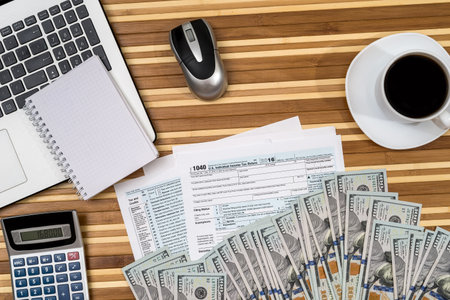Introduction to Credit Card Rights in the UK
Let’s face it – credit cards can feel like a double-edged sword. On one hand, they open up a world of convenience (and maybe a few cheeky online shopping sprees). On the other, they come with terms, conditions, and fine print that could make anyone’s head spin. But here’s the good news: as a credit cardholder in the UK, you’ve got a whole toolkit of legal rights and protections in your back pocket. Whether you’re new to credit cards or just haven’t bothered to read the small print (don’t worry, we’ve all been there), understanding these rights isn’t just smart – it can save you money and headaches down the line. In this article, we’ll walk through what you’re entitled to as a UK cardholder, why these protections exist, and how they can help you shop with confidence from Brighton to Belfast. So grab a cuppa, get comfy, and let’s demystify your credit card rights together!
Understanding Section 75 Protection
If you’ve ever wondered what gives UK credit cardholders that extra peace of mind, it’s all about Section 75 of the Consumer Credit Act 1974. Don’t worry if that sounds a bit legal – I’ll break it down in a way that actually makes sense! Section 75 is your safety net when shopping with your credit card, making sure you’re not left out of pocket if something goes wrong.
What Is Section 75?
Section 75 is a piece of UK law that holds your credit card provider equally responsible with the retailer or supplier if things go pear-shaped. This means, if you buy something costing between £100 and £30,000 on your credit card and there’s a problem (like the item doesn’t arrive, is faulty, or the company goes bust), you can claim your money back from the credit card company as well as the retailer.
When Does Section 75 Apply?
| Scenario | Does Section 75 Cover It? |
|---|---|
| Item not delivered | Yes |
| Goods are faulty | Yes |
| Supplier goes bust | Yes |
| Total cost under £100 or over £30,000 | No |
| Paid by debit card or cash | No |
| Bought through third-party sites (e.g., PayPal)* | Sometimes (can be tricky) |
*Important to Note:
If you use a third-party payment service like PayPal, Section 75 might not apply unless the credit card company has a direct relationship with the supplier. Always check before making big purchases!
Real-Life Examples You Can Relate To:
- You book a holiday online for £500 using your credit card. The travel company goes into administration before your trip – you can claim back from your credit card provider.
- You buy a new phone for £350 on your credit card, but it arrives broken and the retailer ignores your emails – again, Section 75 has your back.
- You order concert tickets for £120 but never receive them. If the ticket seller disappears, you don’t have to wave goodbye to your hard-earned cash.
This kind of protection really sets UK consumers apart – it’s one of those benefits that makes using a credit card for big purchases a smart choice!
![]()
3. Chargeback: Another Layer of Security
Let’s chat about chargeback—a handy tool that gives UK credit cardholders a bit more peace of mind. So, what exactly is chargeback? Simply put, it’s a process that lets you ask your bank to get your money back if something goes wrong with a purchase. Maybe the item never arrived, or perhaps the service wasn’t as promised. Whatever the case, chargeback steps in as a sort of safety net when things don’t go to plan.
You might use chargeback if, for example, a company goes bust and you can’t get hold of anyone for a refund. Or maybe you received faulty goods and the retailer isn’t playing ball. The best part? You don’t just have to rely on the retailer’s goodwill—you can go straight to your card provider for help.
Now, you might be wondering how chargeback differs from Section 75. Good question! While Section 75 is a legal right that covers purchases over £100 and under £30,000 made directly with your credit card, chargeback isn’t written into law. Instead, it’s part of card scheme rules (like Visa or Mastercard). This means chargeback can cover smaller purchases—even those under £100—and it works for debit cards too, not just credit cards.
To sum up: think of chargeback as an extra layer of protection. It’s there for when things slip through the cracks, making sure UK shoppers aren’t left out of pocket if something goes wrong with their card purchases.
4. Your Rights Around Fraud and Unauthorised Transactions
If you ever spot a payment on your credit card statement that you don’t recognise, it can be quite unsettling. Luckily, UK law offers strong protection for cardholders facing fraud or unauthorised transactions. Here’s what you need to know and the steps to take if this happens to you.
What Counts as Unauthorised?
An unauthorised transaction is any payment made from your account that you did not approve – whether your card was lost, stolen, cloned, or your details were used online without your knowledge. The Financial Conduct Authority (FCA) requires banks and credit card providers to act swiftly when these cases arise.
Your Legal Protections
| Scenario | Your Liability | Bank’s Duty |
|---|---|---|
| Card lost or stolen and used fraudulently | Up to £35 (unless you acted with gross negligence or fraud) | Refund unauthorised payments quickly; investigate the claim |
| Card details stolen online (you still have the card) | £0 – you’re not liable for losses before reporting it, unless negligent | Refund and cancel compromised card; issue a new one |
| You report an unauthorised transaction | No responsibility for further losses after reporting | Stop future transactions; refund within a few days |
What To Do If You Spot Fraudulent Activity
- Contact your bank immediately: Use the emergency number (often on the back of your card). Most banks are available 24/7 for such issues.
- Check for other suspicious transactions: Go through recent statements and flag anything unusual.
- Follow up in writing: It’s wise to confirm your report by email or letter so there’s a record.
- Your bank will investigate: They should refund you promptly while looking into the matter, unless they suspect you were involved in the fraud or acted carelessly with your card details.
- If unhappy with the outcome: You can escalate the complaint to the Financial Ombudsman Service for free support.
A Few Handy Tips
- Always update your contact info with your bank so they can reach you if they spot suspicious activity.
- If travelling abroad, let your bank know in advance – this can help avoid confusion over legitimate overseas transactions.
- Never share your PIN or password with anyone – not even bank staff!
The good news? In most cases, UK banks act quickly and fairly when fraud strikes. As long as you act fast and follow their guidance, you should be protected from financial loss.
5. Refunds, Returns, and Disputes
If you’ve ever bought something that wasn’t quite right, or found yourself in a bit of a disagreement with a shop over a refund, you’re definitely not alone! When using your credit card in the UK, you actually have a good few legal rights to help protect your purchases—so let’s break down what you can do if things don’t go to plan.
Your Rights on Refunds
Under UK law, most shops will offer you a refund if the item is faulty or not as described. If you simply change your mind, it depends on the shop’s policy—but buying online usually gives you 14 days to send stuff back under the Consumer Contracts Regulations. Always check the returns policy before buying, especially for sale items or personalised goods.
Dealing with Dodgy Purchases
If your purchase arrives broken, doesn’t turn up at all, or the merchant suddenly vanishes, don’t panic! For credit card purchases between £100 and £30,000, Section 75 of the Consumer Credit Act means your credit card provider is equally responsible with the retailer. This gives you extra backup to claim your money back if things go wrong. Just contact your card provider—they’ll guide you through making a claim.
Disputes with Merchants
If there’s a disagreement (maybe they say no refund when you’re entitled to one), always try speaking to the merchant first—sometimes it’s just a misunderstanding. If that doesn’t work, contact your card issuer and ask about “chargeback”. It’s not a legal right like Section 75 but is an extra safety net where your provider tries to get your money back from the retailer’s bank. There are time limits though (usually within 120 days), so act quickly!
Top Tips for Handling Problems
- Keep all receipts and emails related to your purchase—they’ll be handy if you need to make a claim.
- If shopping online, pay by credit card for added protection.
- Know your rights: Section 75 for credit card purchases over £100; chargeback for other issues or debit cards.
- Always try resolving things directly with the seller first—it’s often quicker!
Remember:
Your credit card isn’t just for spending—it’s also a powerful tool for getting your money back if something goes pear-shaped. So next time you’re shopping in the UK, relax knowing you’re backed by some strong legal protections!
6. Staying Informed: Where to Get Advice and Support
If you ever feel a bit lost or unsure about your rights as a UK credit cardholder, don’t worry—you’re definitely not alone! There are plenty of trusted British organisations that specialise in helping people just like you understand the ins and outs of credit card protection.
Citizens Advice
Citizens Advice is often the first port of call for many Brits. They offer free, confidential guidance on all sorts of consumer issues, including credit card disputes, fraud, and your legal protections. You can get help online, over the phone, or even face-to-face at one of their local offices.
The Financial Ombudsman Service (FOS)
If youve raised a complaint with your credit card provider and arent satisfied with their response, the Financial Ombudsman Service is there to step in. This independent body helps resolve disputes between consumers and financial firms—at no extra cost to you.
The MoneyHelper Service
MoneyHelper (previously known as the Money Advice Service) is backed by the government and offers straightforward advice on managing money and understanding your rights. Their website is packed with easy-to-understand guides about credit cards, debt solutions, and consumer protections.
Other Helpful Resources
- Which?: A trusted consumer champion providing detailed reviews and up-to-date advice on credit card products and customer rights.
- Your Card Provider’s Customer Service: Don’t forget, your own bank or credit card company should have a dedicated team ready to answer any questions about your account or specific protections.
Final Tip
It always pays to stay clued up! Bookmark these resources or save their contact details somewhere handy—so if anything ever seems amiss with your credit card, you’ll know exactly where to turn for friendly, expert help.

